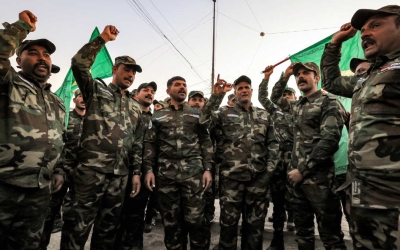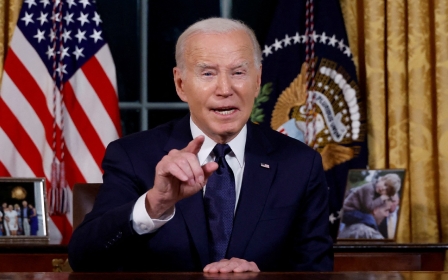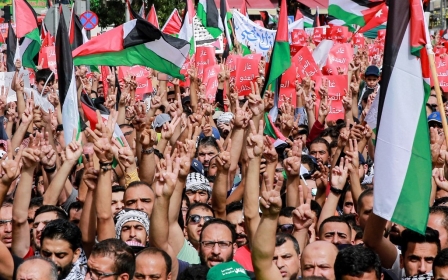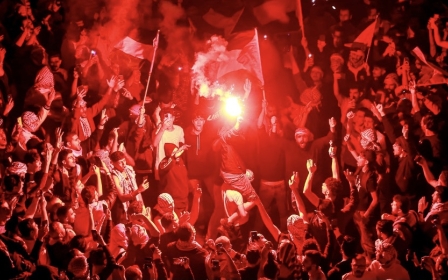US vows 'consequential' response to Jordan attack, as Iran denies responsibility
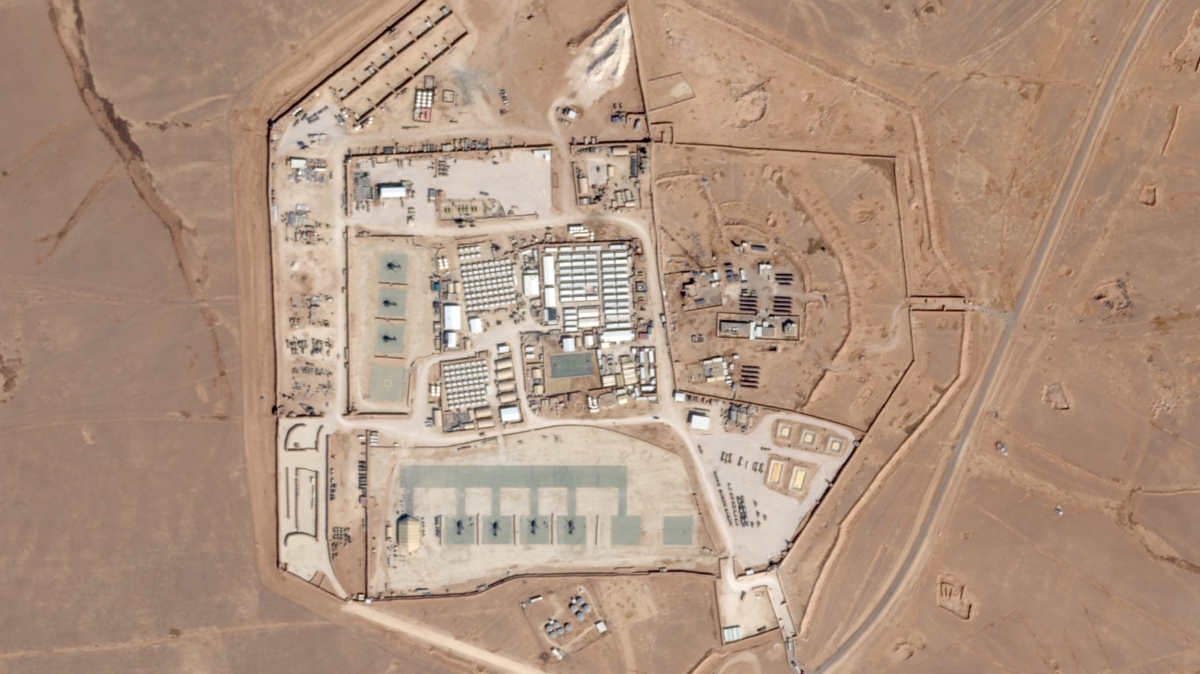
The US vowed a "very consequential response" to a drone attack on a base in Jordan that killed three American troops, even as it said it was not seeking a war with Iran.
The attack, which occurred at a military base in a remote, northeastern corner of Jordan on the border with Syria, marked the first US military deaths since the war in Gaza erupted on 7 October after Hamas-led attacks on southern Israel.
White House National Security Council spokesman John Kirby told CNN on Monday that the US retaliation for the attack would be "very consequential", but he also tried to draw a line in the sand to limit the fallout from Washington’s potential retaliation.
“We don't seek a war with Iran. We're not looking for a wider conflict in the Middle East,” he said.
Iranian-backed groups have launched at least 150 attacks on US assets in Iraq and Syria since October, but Sunday marked the first in Jordan, a key US ally considered a bastion of stability in the region. Jordan is home to at least 3,000 US troops and is a key US counter-terrorism partner.
New MEE newsletter: Jerusalem Dispatch
Sign up to get the latest insights and analysis on Israel-Palestine, alongside Turkey Unpacked and other MEE newsletters
Previous attacks on US assets have caused injuries among troops, but the strike on Tower 22, the remote base housing around 350 US soldiers, marked the first time Iranian-backed groups have been able to kill American troops.
Air defence mix-up
The attack occurred at the same time a US drone was returning to the base, leading to confusion about whether the incoming drone was a friend or foe. Because of the mix-up, air defence systems were not immediately activated. At least 34 soldiers were also injured.
The Wall Street Journal first reported on the drone mix-up.
President Biden said the attack was conducted by “radical Iran-backed militant groups operating in Syria and Iraq”.
On Monday, Kirby provided more information, saying the US had “a pretty good sense” of who was responsible for the strike, suggesting the group was supported by Kataib Hezbollah, an Iraqi paramilitary group with close links to the Iranian Revolutionary Guard Corps.
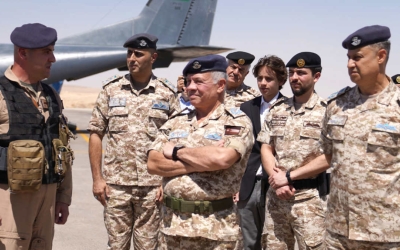
The American deaths are piling pressure on the Biden administration to respond more forcefully against Iranian-backed groups, with Republican lawmakers saying the US has failed to deter Iran.
Congressman Adam Smith, the top Democrat on the House Armed Services Committee, said the US had to “respond and find a way to stop these attacks”, and tied the attacks directly to the war in Gaza.
“The conflict in Gaza is empowering Iran right now. And that is bad for us, bad for Israel, bad for the Arab states, bad for the world. So finding a resolution to that is a crucial part of this challenge as well,” he said.
'Resistance groups'
The Jordan attack is the most deadly example to date for the US due to the war in Gaza seeping out beyond the besieged Mediterranean enclave’s borders.
On Sunday, Iran’s foreign ministry spokesman Nasser Kanani said Tehran had nothing to do with the attack on Jordan and accused the US of backing a “genocide” of Palestinians in Gaza.
He said that Tehran "is not involved in the decisions of the resistance groups”, a reference to the so-called axis of resistance supported by Iran made up of Lebanese Hezbollah, Houthi fighters in Yemen and Shia militias in Syria and Iraq.
But on Sunday, the Islamic Resistance in Iraq - an umbrella group of Iranian-backed militias - claimed responsibility for launching three drone attacks at bases in Syria, including near the Jordanian border.
US claims that Kataib Hezbollah supported the strike on Tower 22 could set the stage for a retaliatory strike against the group in Iraq.
But a retaliation in Iraq would likely increase pressure for a US military withdrawal from the country, just as the US is set to restart talks with Baghdad on the future of the US-led mission to counter the Islamic State militant group.
The US has around 2,500 troops in Iraq.
The attack also ratchets tensions up to a new level, just as the US makes a new push for a hostage deal in Gaza that would be paired with a pause in fighting. CIA director Bill Burns was in Paris on Sunday with Israeli, Egyptian and Qatari officials to discuss a deal.
Middle East Eye delivers independent and unrivalled coverage and analysis of the Middle East, North Africa and beyond. To learn more about republishing this content and the associated fees, please fill out this form. More about MEE can be found here.


